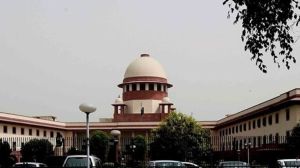Anti-graft measures to clean up China
BEIJING, AUG 21: China plans to intensify its war on corruption by auditing senior officials when they leave their posts, the official Chi...

BEIJING, AUG 21: China plans to intensify its war on corruption by auditing senior officials when they leave their posts, the official China Daily newspaper reported on Monday, quoting the country’s top auditor.
"Our aim is to build a new system under which all officials will be checked when they leave their jobs, including when they retire," said Li Jinhua, Chief of the National Audit Office.
The auditor-general told the newspaper that China’s leadership was keen to apply to the ministry level an auditing system started last year for officials at county level and below and for heads of all state-owned enterprises.
Li said China’s auditors would gather in Beijing next month to "find a way to bring more senior officials under the system".
China’s anti-graft moves come as Cheng Kejie, a former vice chairman the National People’s Congress, China’s parliament, sat on death row appealing his sentence for taking bribes worth 41 million yuan ($5 million) when he was government Chief of the south western region of Guangxi.
If the sentence is carried out, Cheng will be the seniormost Chinese official to be executed for corruption since the Communist Party took power in 1949.
Cheng’s crimes and ill-gotten gains were the centrepiece of anti-corruption exhibition which opened in a Beijing museum on Sunday to what state media said was to a sell-out crowd. But many key cases were not on display, visitors said.
Corruption seen as cancer
Li said he envisioned that ministers and provincial governors would "gradually" be made accountable under the audit system, which would check for lawbreaking and measure job performance.
But he did not say whether China would audit people at the highest level of the Communist Party and state power or if the checks would require disclosures of officials’ financial assets upon taking and leaving office, as is done in many countries.
The highest level at which the audit system was being applied was on the former chairman of the China Securities Regulatory Commission and the former presidents of China’s five largest state banks, following their reshuffle in March, Li said.
China’s top leaders have likened rampant corruption to a cancer that threatens the Communist Party’s grip on power.
Continuous exhortations to the party and government to clean up its act — driven home by high-profile prosecutions of select, spectacular cases — has failed to assuage public cynicism about the party’s ability to police its own.
Past Audits uncover widespread abuses
In July, Auditor-General Li told parliament that government bodies were misusing funds, directing cash meant for flood control or poverty relief into the building of "posh" office buildings and hotels.
An audit of 55 government bodies in 1999 had shown that 18 had failed to hand over 1.73 billion yuan in income while 36 had misallocated 2.11 billion yuan. The Ministry of Water Resources was singled out as a repeat offender in the abuses.
Provincial tax departments mishandled 9.37 billion yuan in funds, draining 2.79 billion yuan from the central coffers, while malpractice by customs offices also caused a 346 million yuan in lost taxes, Li told Parliament’s standing committee.
Li told state media in December that checks of state firms, banks, agencies and infrastructure projects had uncovered 29.8 billion yuan in fraudulent reporting, irregular fund use, diversion of funds and hoarding of off-book assets.




- 019 hours ago
- 0218 hours ago
- 0318 hours ago
- 048 hours ago
- 0518 hours ago



























